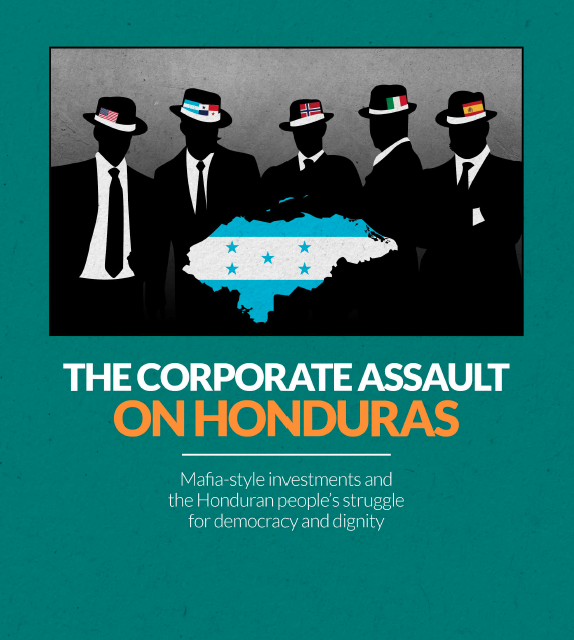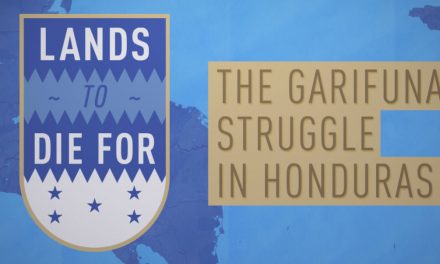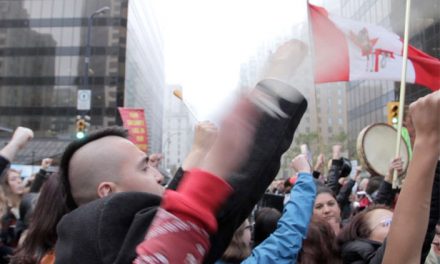Investor-state dispute settlements filed or threatened to be filed by companies against governments pose a major threat to government decision making in favour of people and the environment.
Due to an ISDS clause included in the Free Trade Agreement between Honduras and Canada, which came into force in 2014 – not to mention the 11 other FTAs between Honduras and other countries, the Honduran government is increasingly being squeezed to temper its efforts to protect the public interest.
Of particular interest for Canada is section 4.4 of the newly published report A Corporate Assault on Honduras by the Institute for Policy Studies, Honduras Solidarity Network, Transnational Institute, and Terra Justa (see p. 110), which discusses how the threat of a lawsuit limits the actions and decisions that government authorities take to protect people and the environment. See section 4.4.3 (p. 112) which mentions that while mining companies have not yet filed ISDS cases against the Honduran government, there is evidence that they have threatened to file such suits in order to assure that the government does not strengthen its regulation of the industry.
- Following an announcement by President Xiomara Castro that her administration would no longer issue permits for open-pit mines and that she would favor the protection of water and forests, Canadian mining company Aura minerals came out with press releases that implied to their investors that their mine, a site of intense conflict and criminalization of community members, would not be impacted by this decision. The Castro government “diluted its commitment and delay[ed] its fulfillment.” (p. 112)
Although not Canadian examples, the report also documents how ISDS claims can curtail government proposals for wage increases, infrastructure projects, land expropriation, and in post-coup Honduras, how a series of ‘mafia-like’ claims, including claims related to the privatization of public space, mining and energy contracts, among others, have led to monumental costs to the state (p. 64).
The conclusions section points “to the avalanche of lawsuits facing the country, which [the authors] view as a corporate assault against efforts to overcome the aftermath of the 2009 coup d’état” (p. 177), which as many of you know, was a coup that was supported and flanked by the Canadian and U.S. governments, despite strong national opposition and international outcry.
Check out the full report (English) and (Spanish) and the authors’ press release





